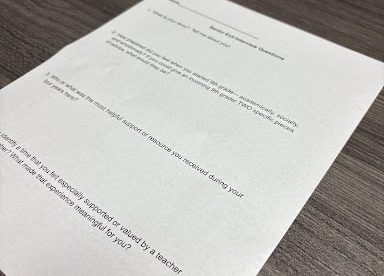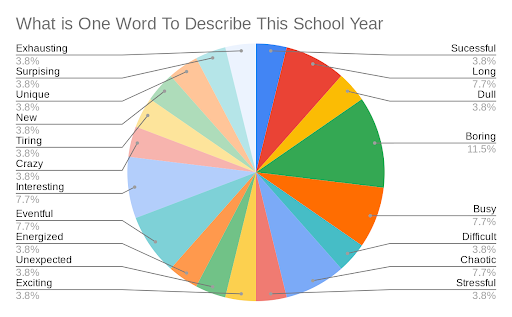Heavily Weighted Grading Scale
Is the 80/20 system hurting students more than helping?

Students hard at work in class studying for an upcoming assessment.
South Windsor High School’s grading scale is a sour topic for many students. At SWHS, the grading system is 80-20. Assessments are 80% and learner tasks are 20% of a student’s grade. Knowing the material without doing learner tasks and walking into the assessment and getting an A is what many students thrive on. However, honors and AP courses are more stressful than CP classes because they have an assessment at least every week.
Lauren Graham is a sophomore at SWHS. Graham is an exemplary student who receives A’s and B’s in multiple honors classes. Graham said that even though she studies for assessments she doesn’t feel prepared walking in.
According to Heather Hobden, whose work was published on Kidio, a letter grade does not explain or prove what students were learning or what they were struggling with. The explanation behind assessments is unknown. Due to teachers having different requirements, a student could be doing very well in a certain subject; however, they might not be following a teacher’s instructions causing their grade to suffer.
Amanda Flachsbart, an English teacher here at SWHS feels that the 80/20 system is different for every subject. “As an English teacher, I don’t mind the 80/20 grading system. It gives students an opportunity to receive credit for their effort, but puts more weight on their skills. In English, assessments are not just about performance on a test; for example, students have a chance to conference about an essay and revise it before submitting. Between that and the fact that we have a retake policy, this grading system feels okay in English.”
Because homework is not always graded, students feel that it isn’t a priority for them since teachers aren’t giving them those 20% points to help their grade, causing students to worry even more when it comes to assessments. Homework helps students understand what they’re learning, or struggling with, so they can ask the teacher to help if they need it.
The reality is that a student who does all of their homework to help their grade, but then gets a B- on an assessment, watches their grade drop, even if they have done everything they needed to do.
Knowing that they’re struggling to get it done and knowing they aren’t getting points towards their grade makes students not want to do their homework, making their grades depend only on doing well on assessments, which is a dangerous game to play.

Reagan Heafey-De Angelis is a junior at South Windsor High School and excited to be joining The Bobcat Prowl. She is involved in many clubs and sports and cannot wait to bring her insight on many topics...






